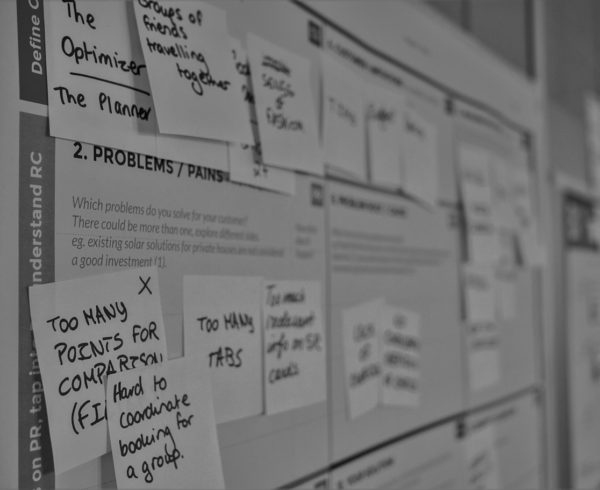Strategic decision making should be informed by clear evidence and these are the principles that we apply within the Economic Development practice at Letsema Consulting.
Any strategy we work on and conceptualise is built on facts, deductive reasoning and proof of concept, before we make recommendations are made to our clients. Combined with the entrepreneurial skills and experience we have within the practice, we are able to craft approaches that draw on the evidence available but that are conceptualised from the perspective of our clients. This ensures high level thinking is embedded at each level of a detailed strategy.
Questions that we always ask ourselves are about the nature of the facts we use to craft our strategies and the advice we give our clients. How good are the facts at our disposal? Are we using A-grade information? If we are not, where can we find the information we need? Are we using facts because they support the approach we want to take? Is the information we have at hand being applied in the best interests of the client?
Within the consulting environment, it is not unheard of for consultants to present strategies that fit the frameworks they, as the consultancy, are most comfortable using regardless of whether or not this is the correct approach for the client.
It is extremely important to have the capability to step back, think about where you are accessing your knowledge from, how you are using it and thinking about the client’s problem from their perspective, or their customer’s, and not our own.
Intrinsic in this approach is how we approach the use of unstructured data, before it even becomes information, which by its very nature, has been structured to one degree or another.
Framework fatigue and leveraging greater data insights
Strategy development experienced a revolution in the 1970s and 1980s as new frameworks, theorems and systems emerged. Business schools in the United States in particular proved to be a hot bed of new thinking within the strategy development field.
The three decades that followed this period however saw strategy development stagnate. However, what happened in parallel to this ideological stagnation in the external environment was and still is a technological revolution. Today, an iPhone or Android device has more computing power than used by NASA during the Apollo missions. The majority of the world’s data has been created in the last five years alone.
In brief, we have moved from the Internet Age into the era of Big Data. From a business and strategic perspective, companies are being increasingly differentiated by their ability to organise the unstructured data at their disposal, draw accurate and applicable insights from such data and feed those findings into their decision-making processes. Strategy development inherently has changed as a result of this paradigm shift.
A strategy for an external company is, on average, compiled in four to eight weeks. In the past, a team would apply their own methods and experience around the information – read structured data – received from the client and their own research to the problem statement.
Technological advancement now, and increasingly so, is able to tap into the unorganised, unstructured data available to companies and the market at large. Technology can now compute this information at high speed so strategists can apply the insights within such data to their strategy development approach.
Depending on the nature of the client being worked with, the strategy developed can be augmented according to real time data instead of using static unstructured data, which only gives you a snapshot in time.
The Economic Development practice at Letsema is increasingly seeking to integrate data insight and analytics into our strategy development approach, and the visualisation thereof, which is in itself an exciting field of thought.
Strategy development has entered a new phase and as strategy and technology continue to evolve in parallel, so will the way strategy is executed. It’s an approach we embrace at Letsema and one we look forward to continuing to develop both in the short and long term.
Want to learn more about Letsema? Connect with our staff on LinkedIn , call 011 233 0000 or email strategy.team@letsema.co.za.









